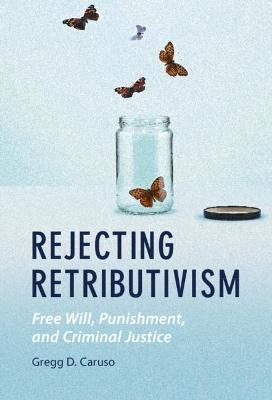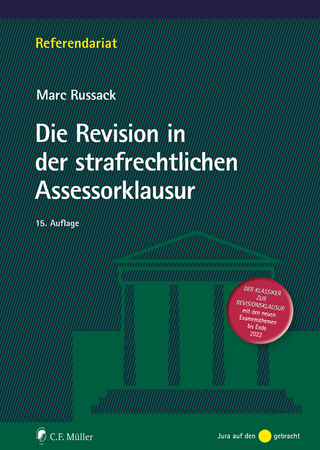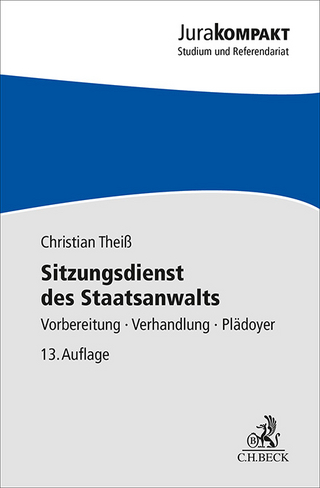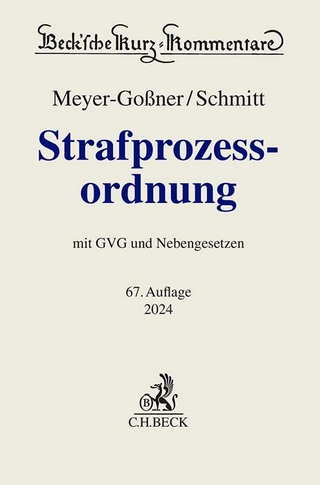
Rejecting Retributivism
Cambridge University Press (Verlag)
978-1-108-48470-1 (ISBN)
Within the criminal justice system, one of the most prominent justifications for legal punishment is retributivism. The retributive justification of legal punishment maintains that wrongdoers are morally responsible for their actions and deserve to be punished in proportion to their wrongdoing. This book argues against retributivism and develops a viable alternative that is both ethically defensible and practical. Introducing six distinct reasons for rejecting retributivism, Gregg D. Caruso contends that it is unclear that agents possess the kind of free will and moral responsibility needed to justify this view of punishment. While a number of alternatives to retributivism exist - including consequentialist deterrence, educational, and communicative theories - they have ethical problems of their own. Moving beyond existing theories, Caruso presents a new non-retributive approach called the public health-quarantine model. In stark contrast to retributivism, the public health-quarantine model provides a more human, holistic, and effective approach to dealing with criminal behavior.
Gregg D. Caruso is Professor of Philosophy at SUNY Corning and Honorary Professor of Philosophy at Macquarie University. He is also the Co-Director of the Justice Without Retribution Network (JWRN) at the University of Aberdeen School of Law. His research interests include free will, agency, and responsibility, as well as philosophy of mind, cognitive science, neuroethics, moral psychology, criminal law, punishment, and public policy. His books include Just Deserts: Debating Free Will (with Daniel C. Dennett, 2021), Free Will and Consciousness: A Determinist Account of the Illusion of Free Will (2012), Exploring the Illusion of Free Will and Moral Responsibility (2013), Science and Religion: 5 Questions (2014), Neuroexistentialism: Meaning, Morals, and Purpose in the Age of Neuroscience (co-edited with Owen Flanagan), and Free Will Skepticism in Law and Society (co-edited with Elizabeth Shaw and Derk Pereboom).
Acknowledgments; 1. Free will, legal punishment, and retributivism; 2. Free will skepticism: hard incompatibilism and hard luck; 3. The epistemic argument against retributivism; 4. Additional reasons for rejecting retributivism; 5. Consequentialist, educational, and mixed theories of punishment; 6. Public health-quarantine model I: a non-retributive approach to criminal behavior; 7. Public health-quarantine model II: the social determinants of health & criminal behavior; 8. Public health-quarantine model iii: human dignity, victims' rights, rehabilitation, and preemptive incapacitation; 9. Public health-quarantine model IV: funishment, deterrence, evidentiary standards, and indefinite detention; References; Index.
| Erscheinungsdatum | 19.04.2021 |
|---|---|
| Reihe/Serie | Law and the Cognitive Sciences |
| Zusatzinfo | Worked examples or Exercises |
| Verlagsort | Cambridge |
| Sprache | englisch |
| Maße | 230 x 150 mm |
| Gewicht | 720 g |
| Themenwelt | Recht / Steuern ► Allgemeines / Lexika |
| Recht / Steuern ► EU / Internationales Recht | |
| Recht / Steuern ► Strafrecht ► Strafverfahrensrecht | |
| ISBN-10 | 1-108-48470-0 / 1108484700 |
| ISBN-13 | 978-1-108-48470-1 / 9781108484701 |
| Zustand | Neuware |
| Informationen gemäß Produktsicherheitsverordnung (GPSR) | |
| Haben Sie eine Frage zum Produkt? |
aus dem Bereich


